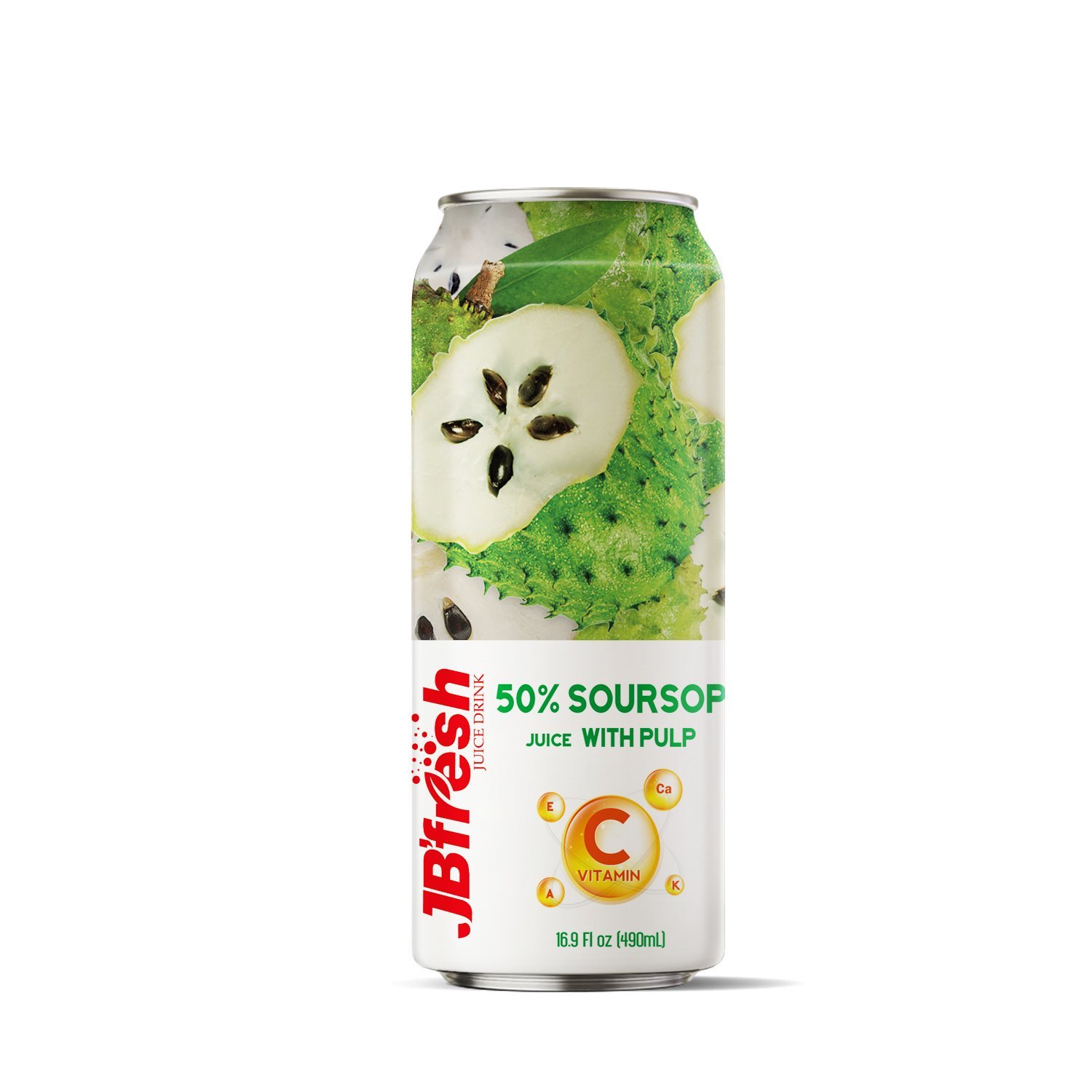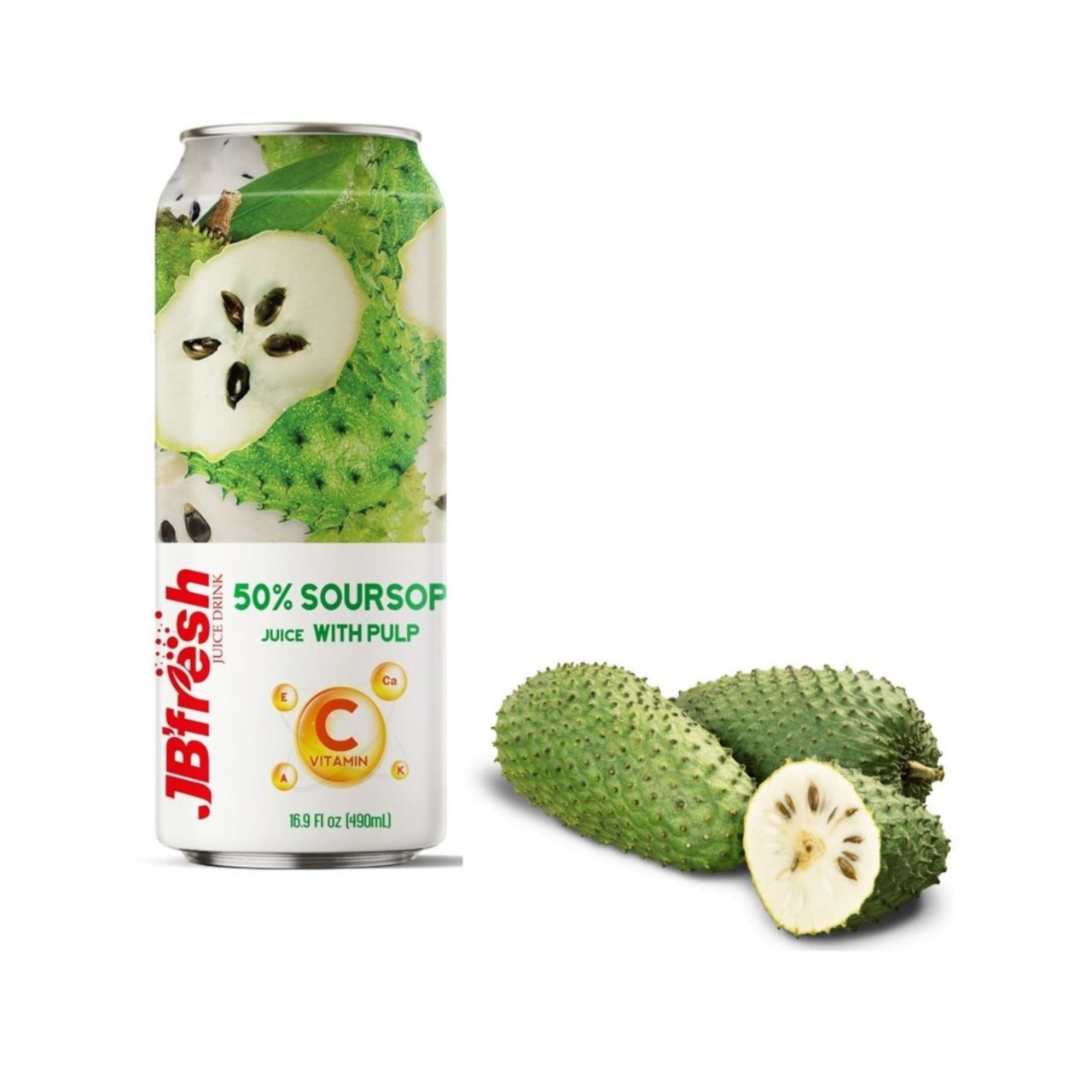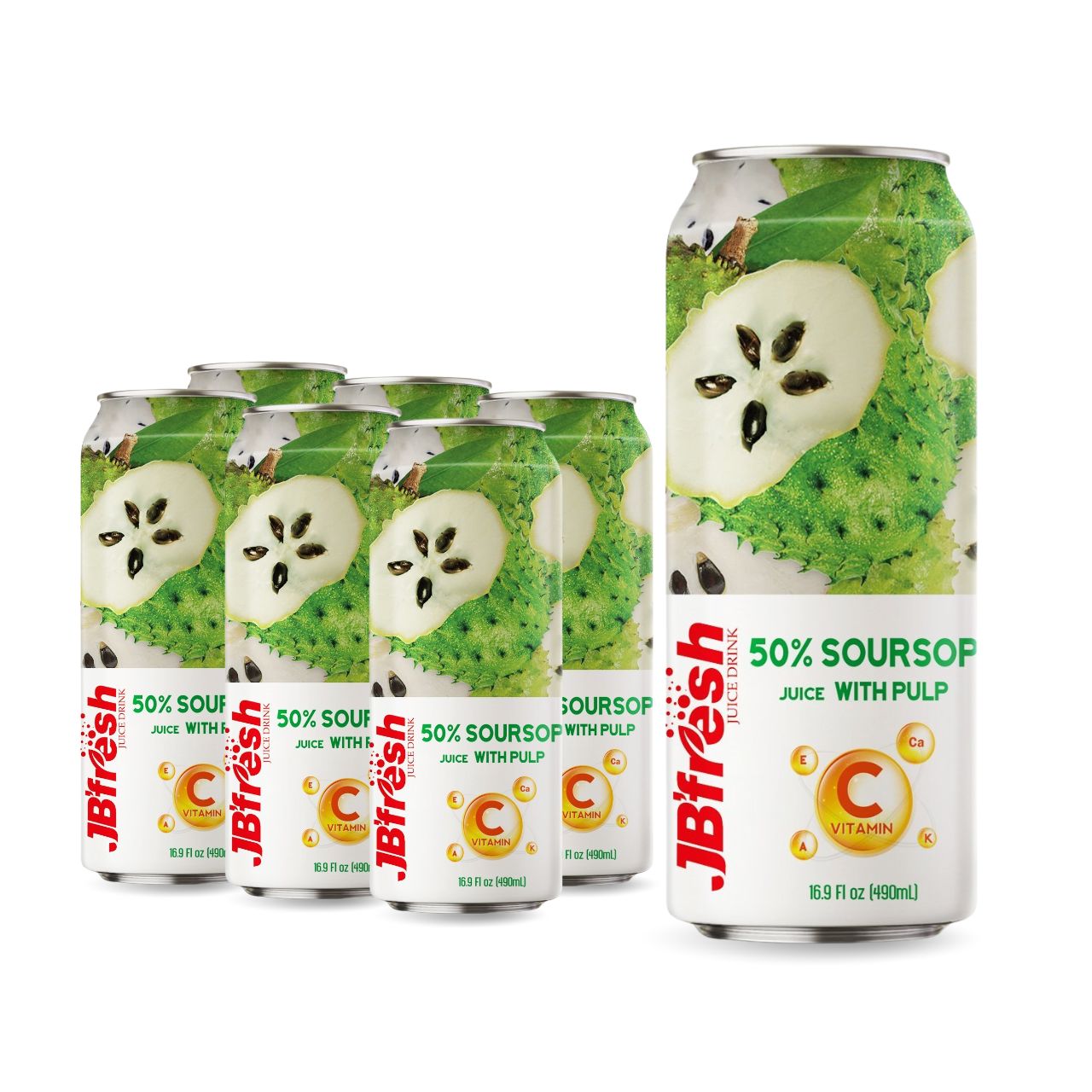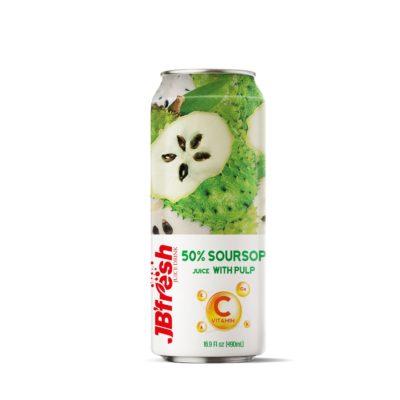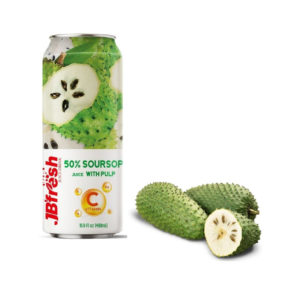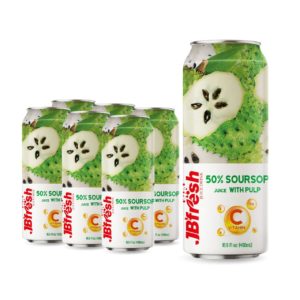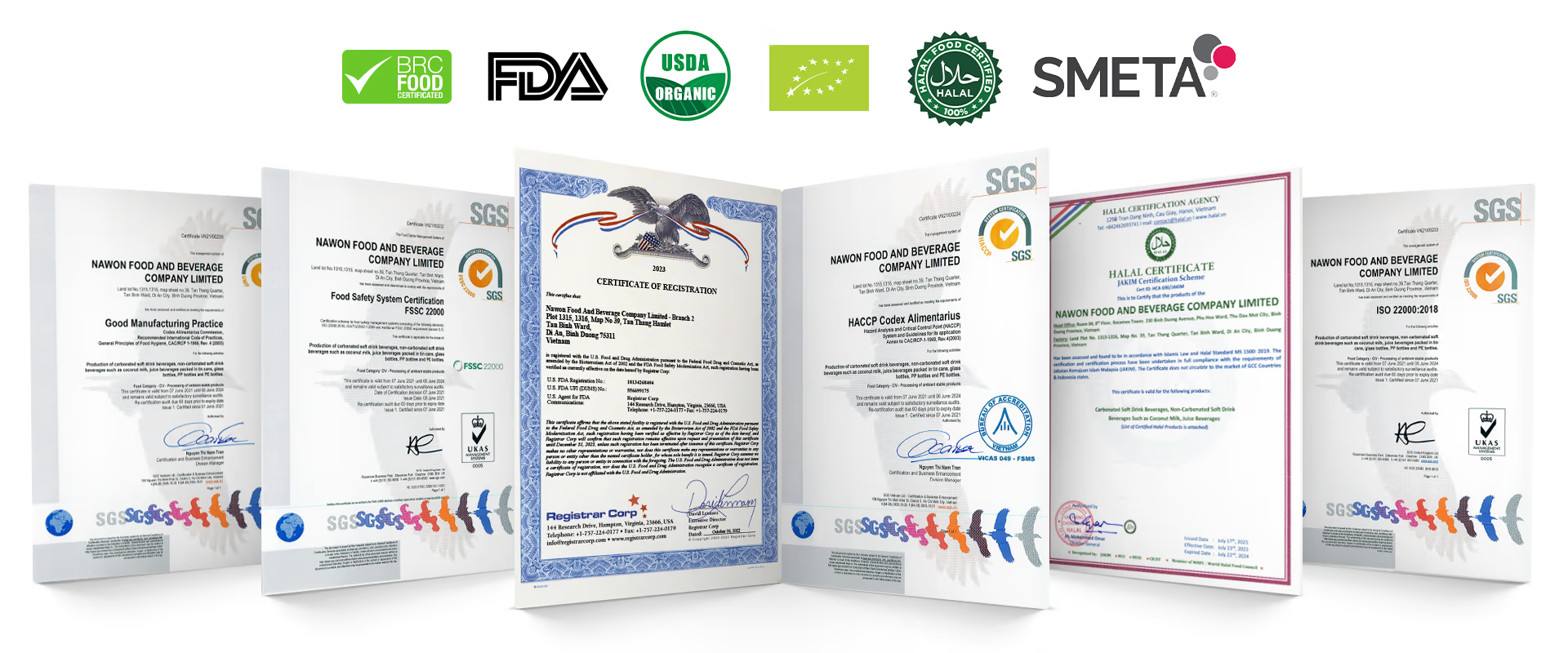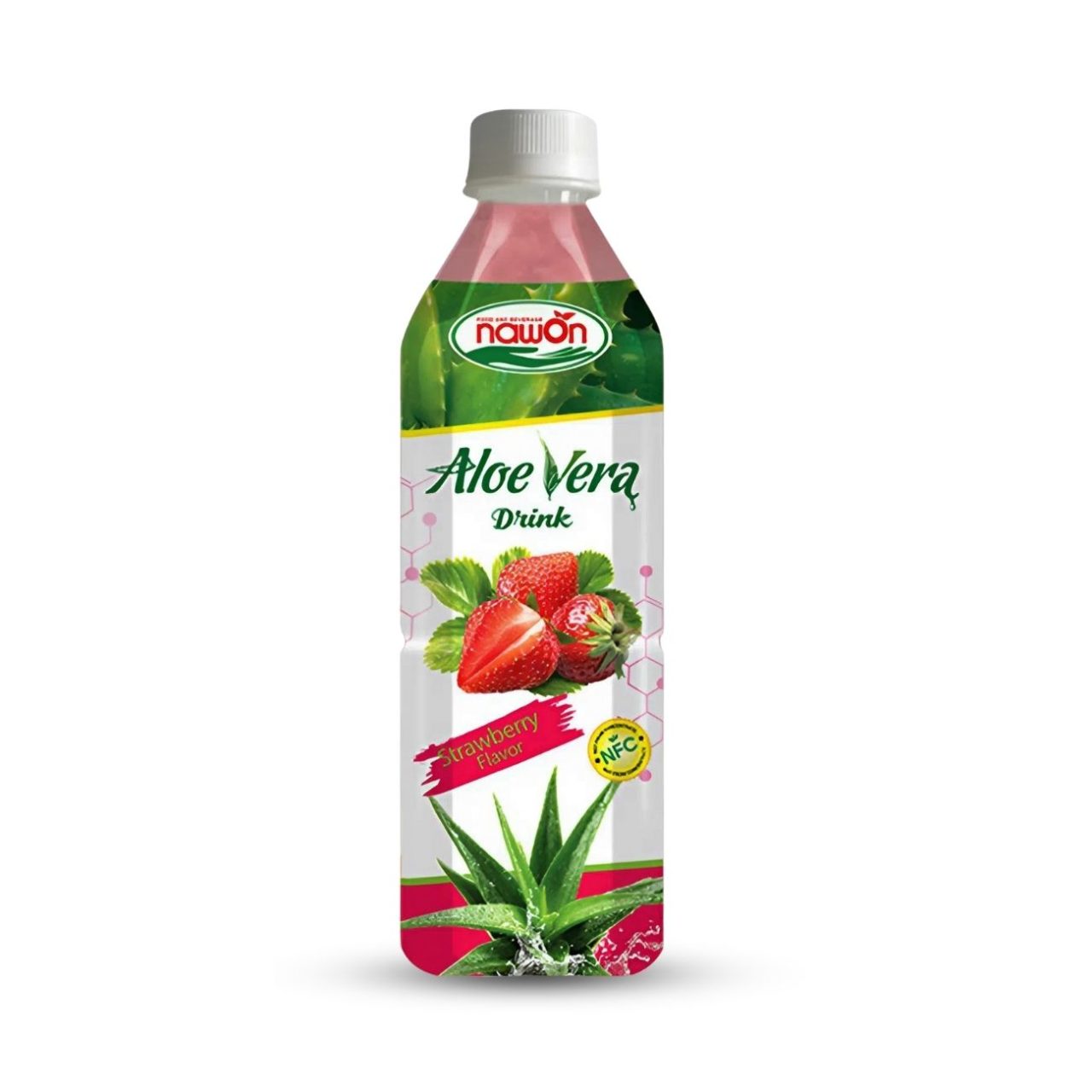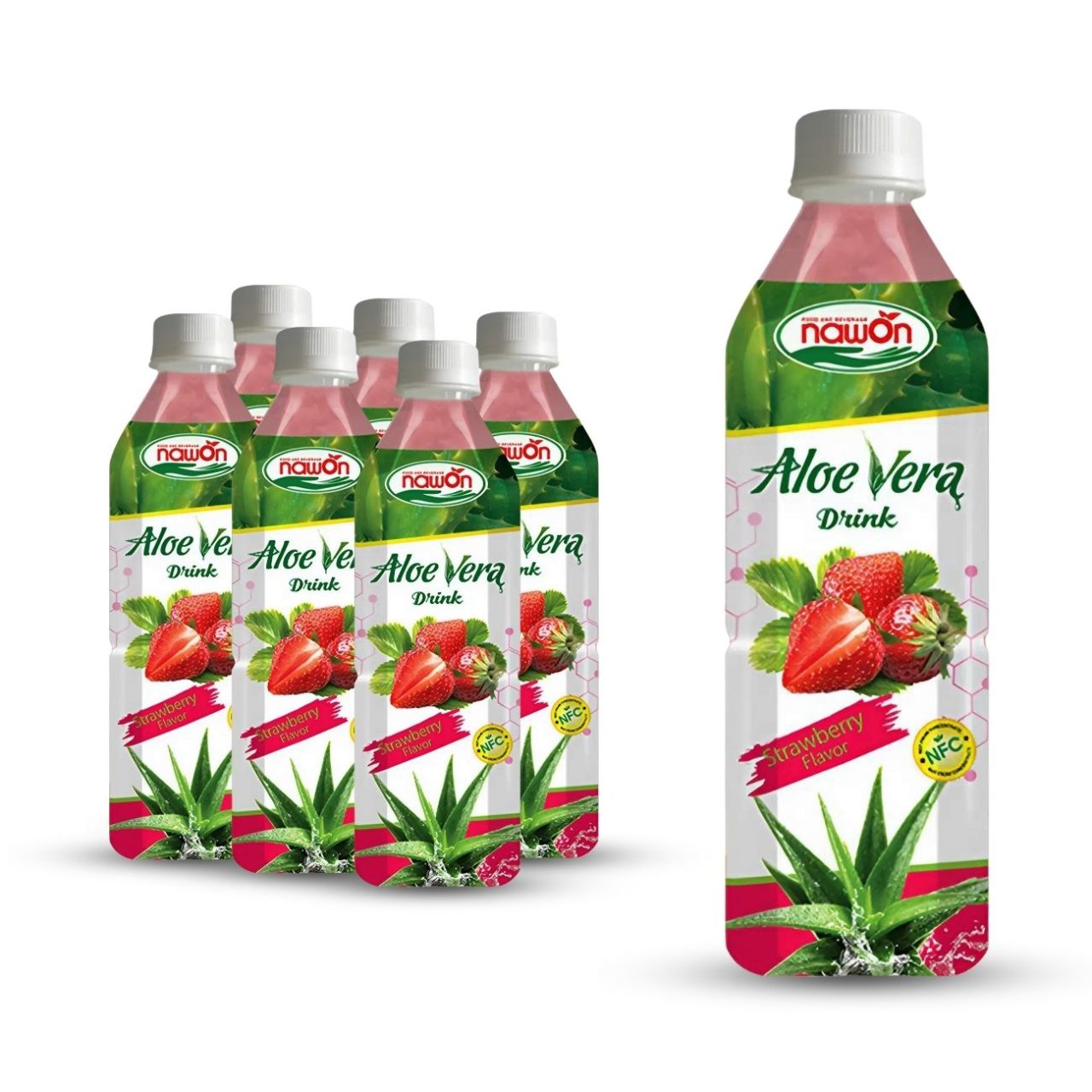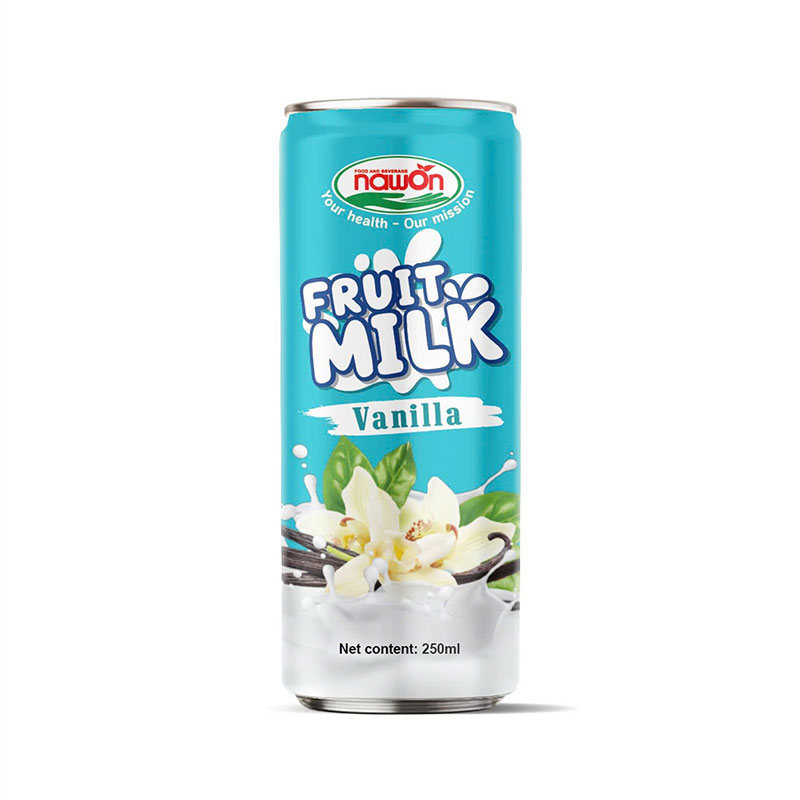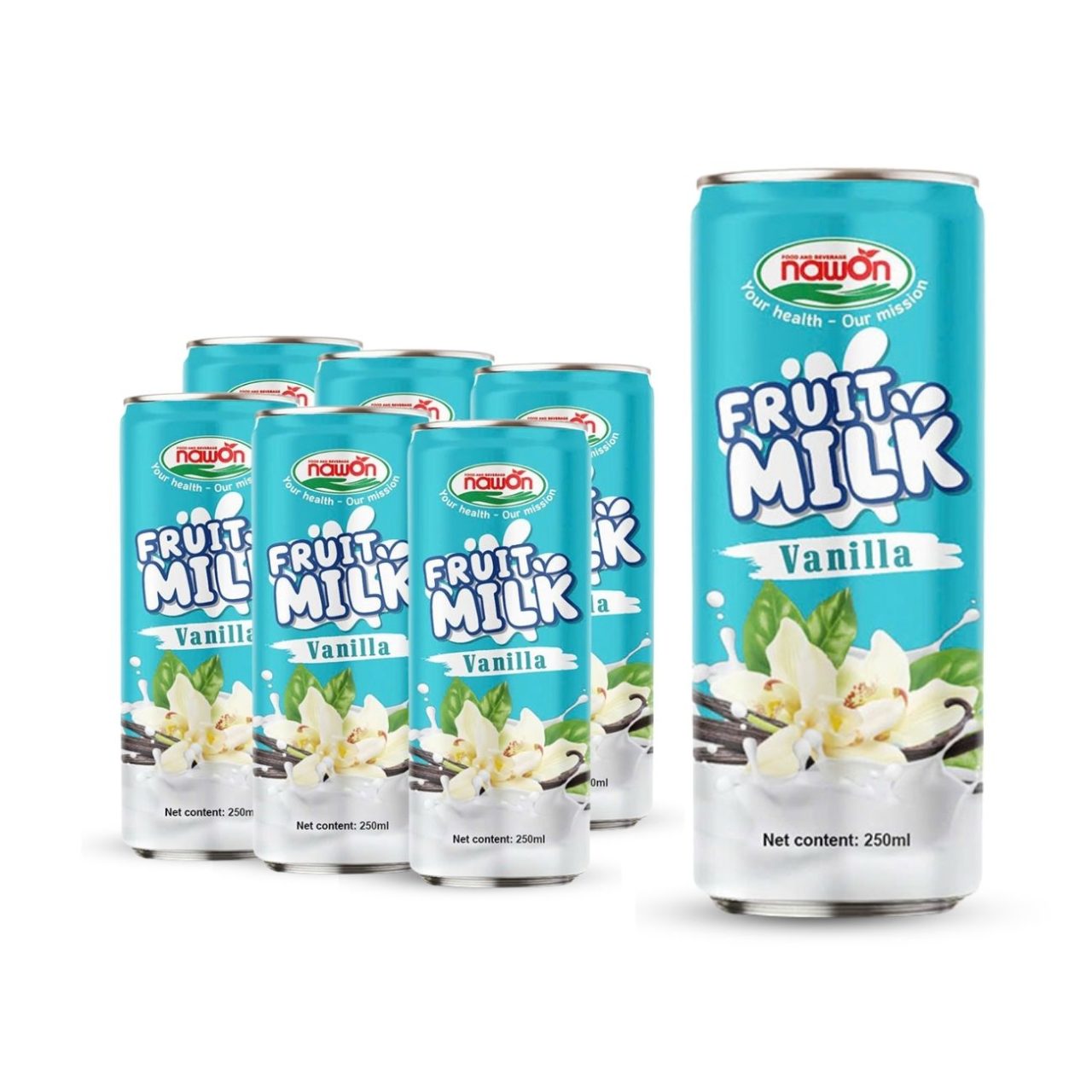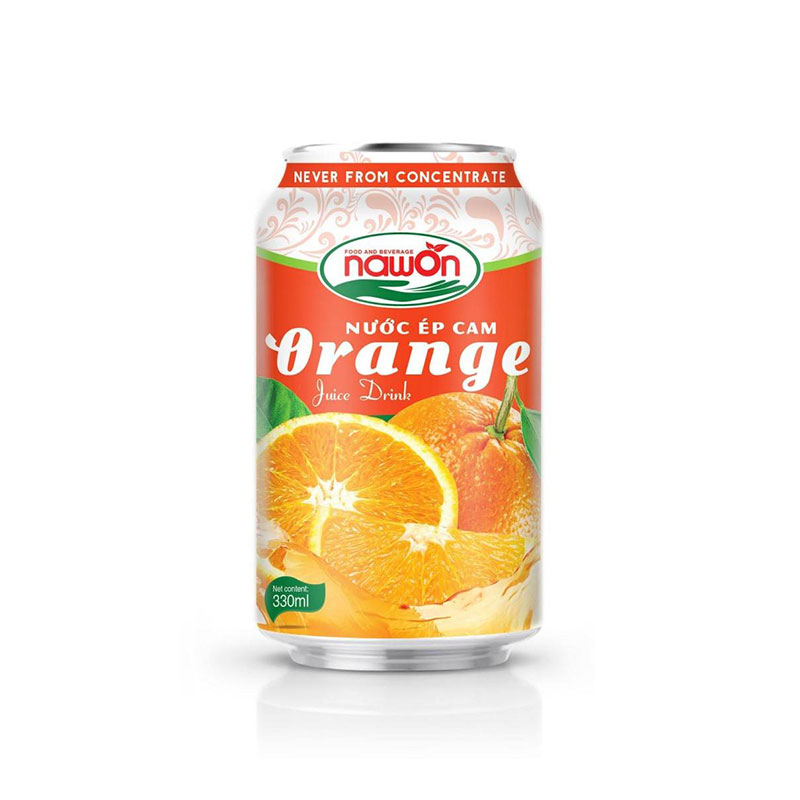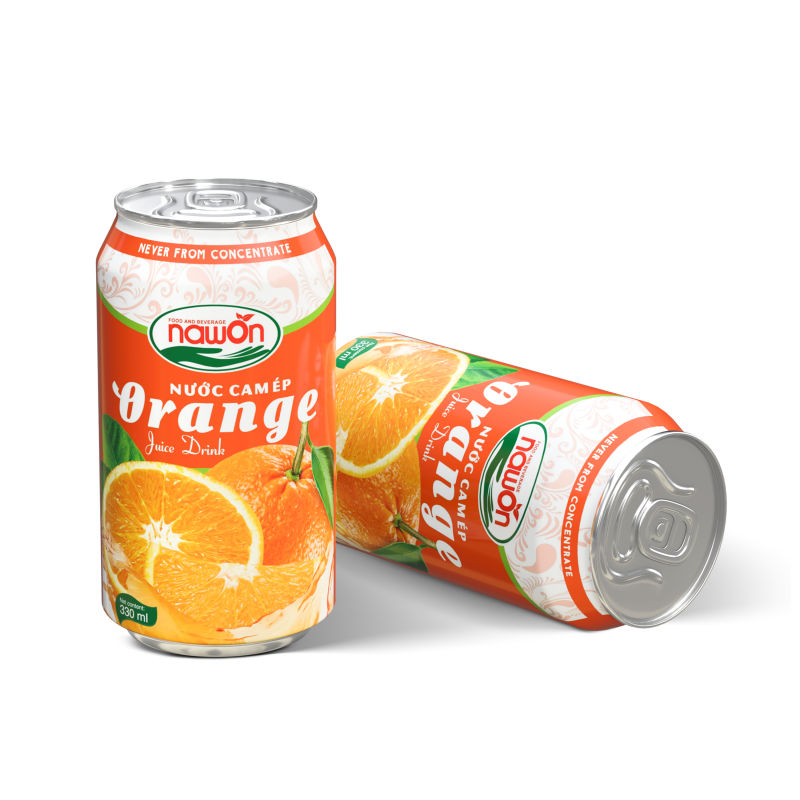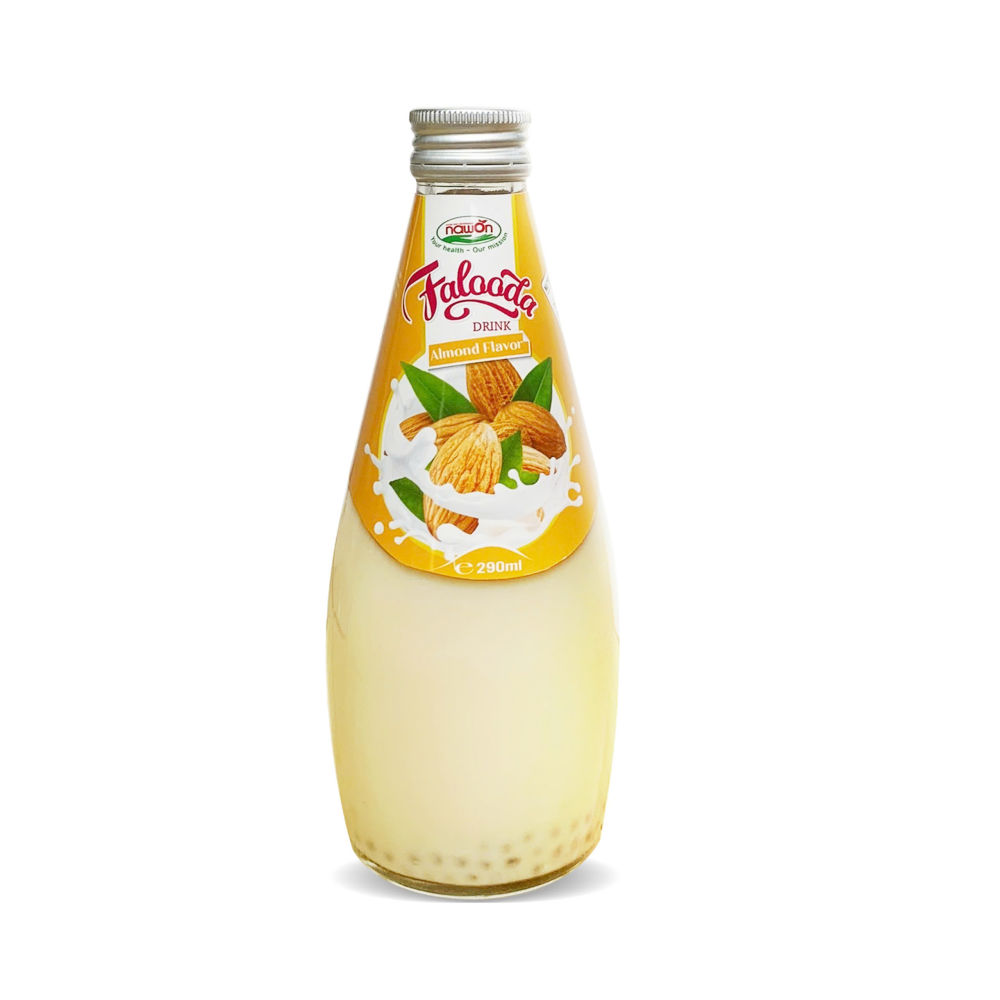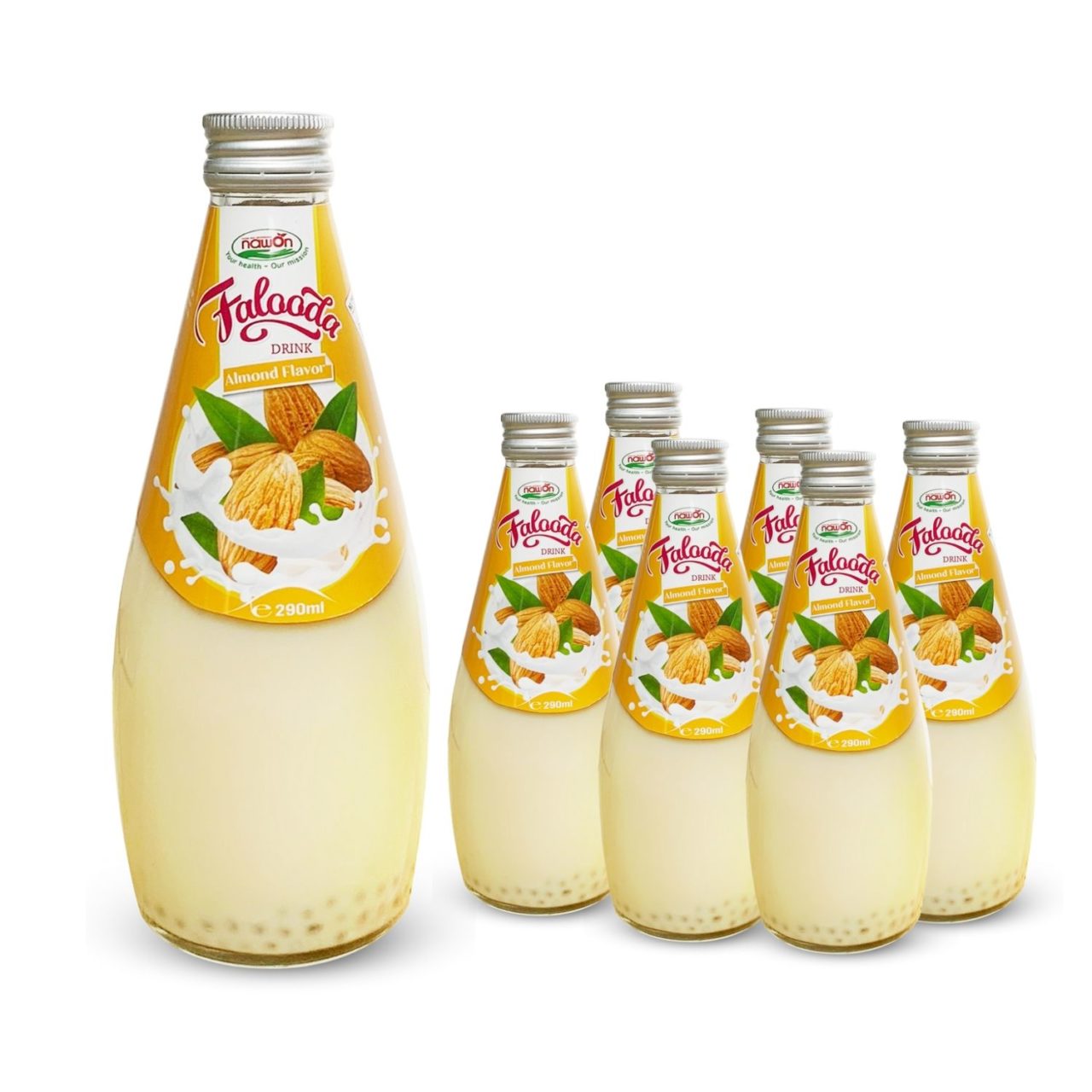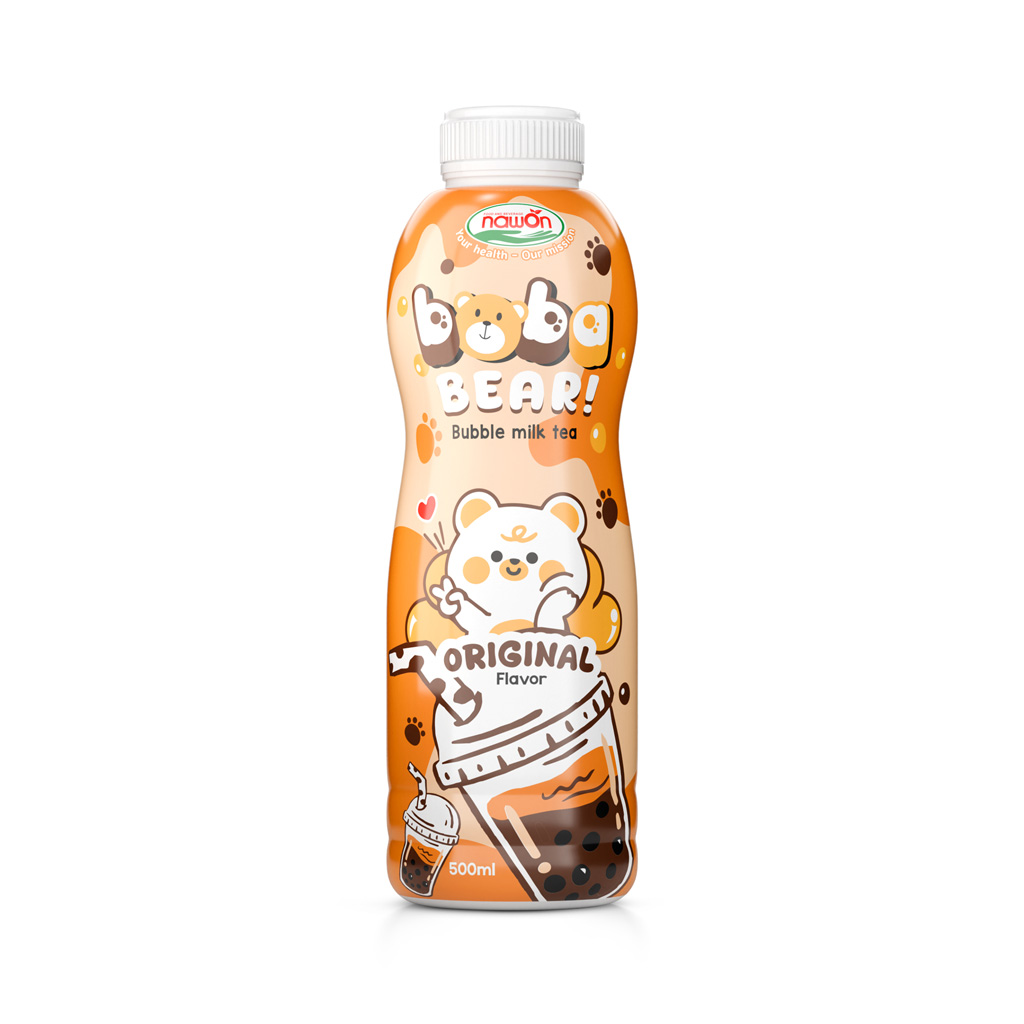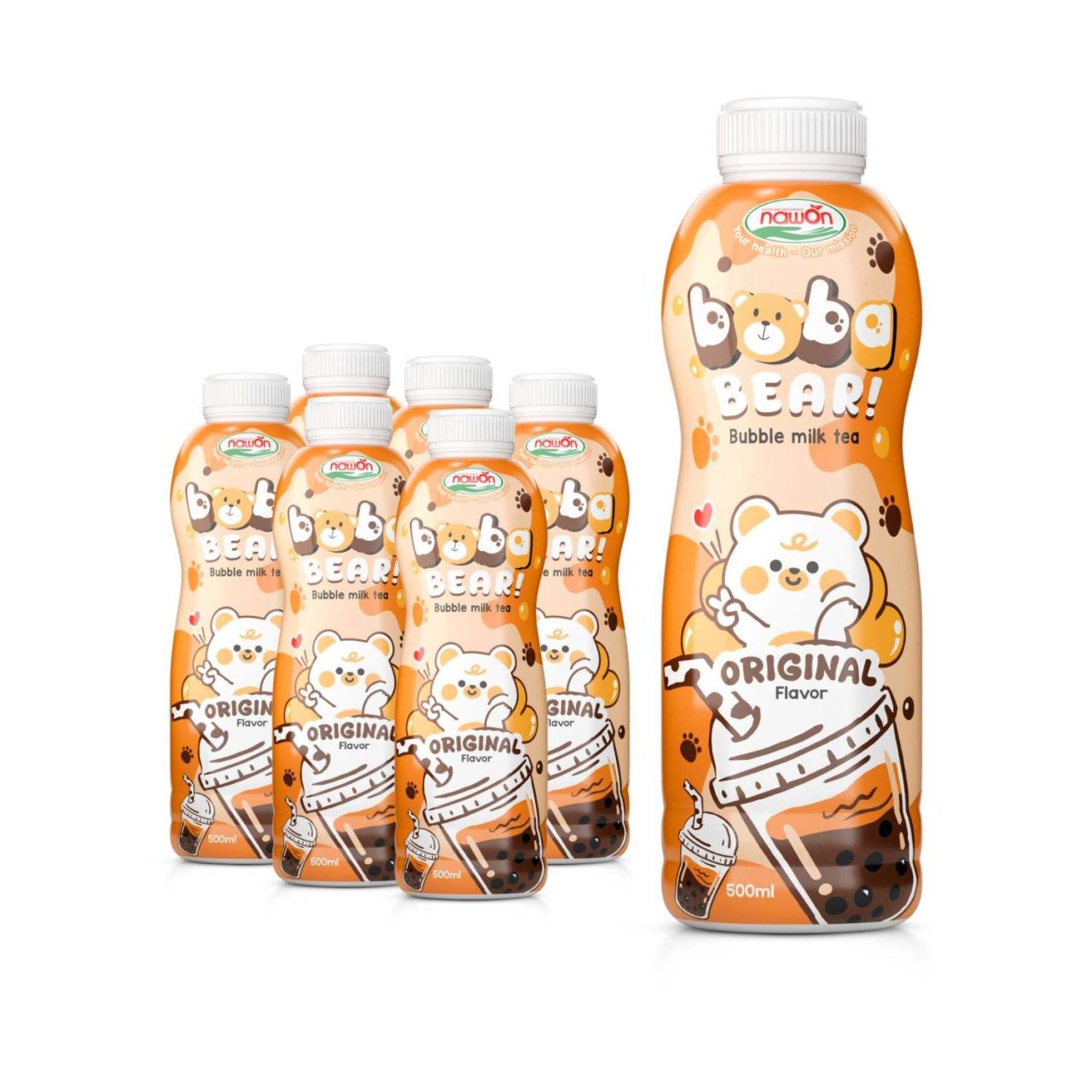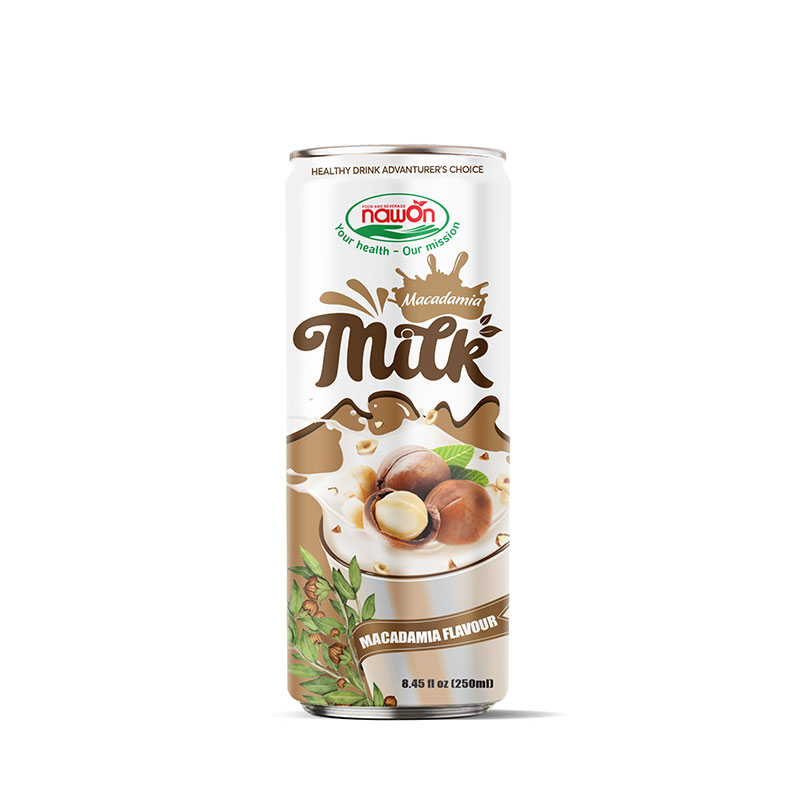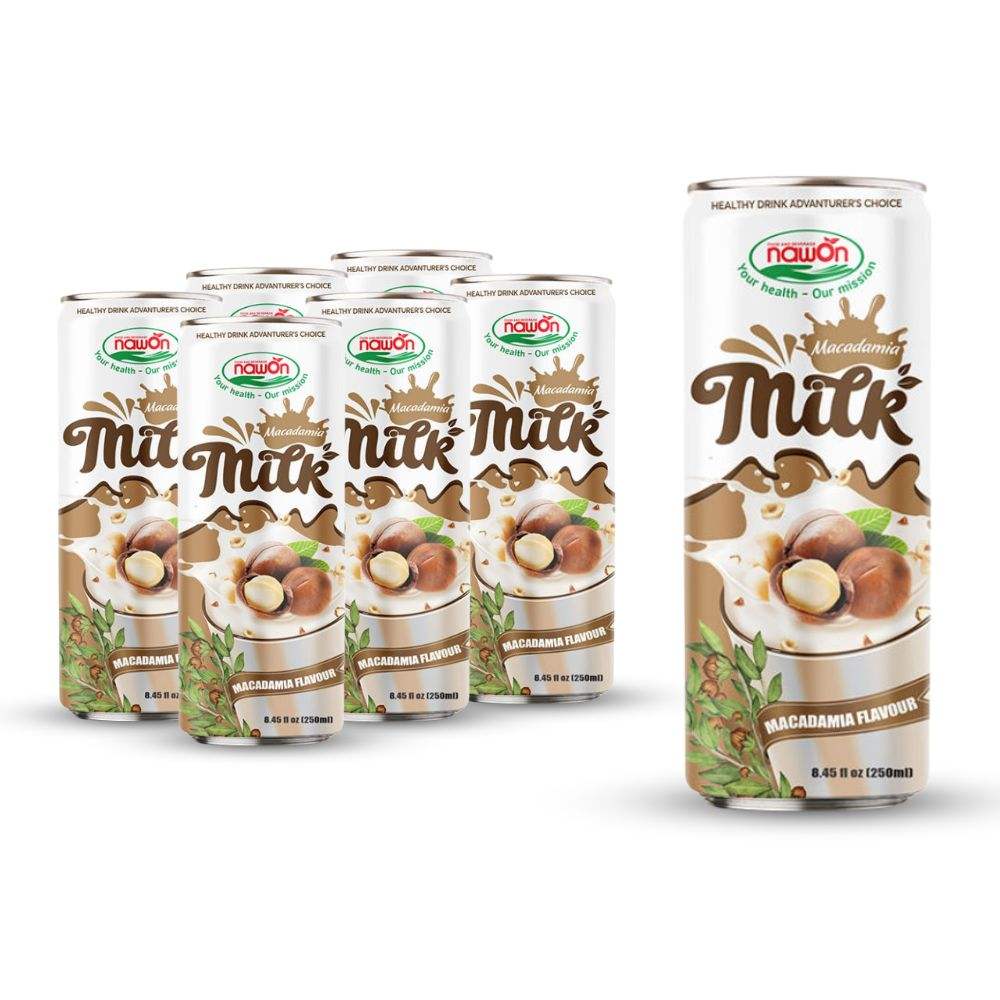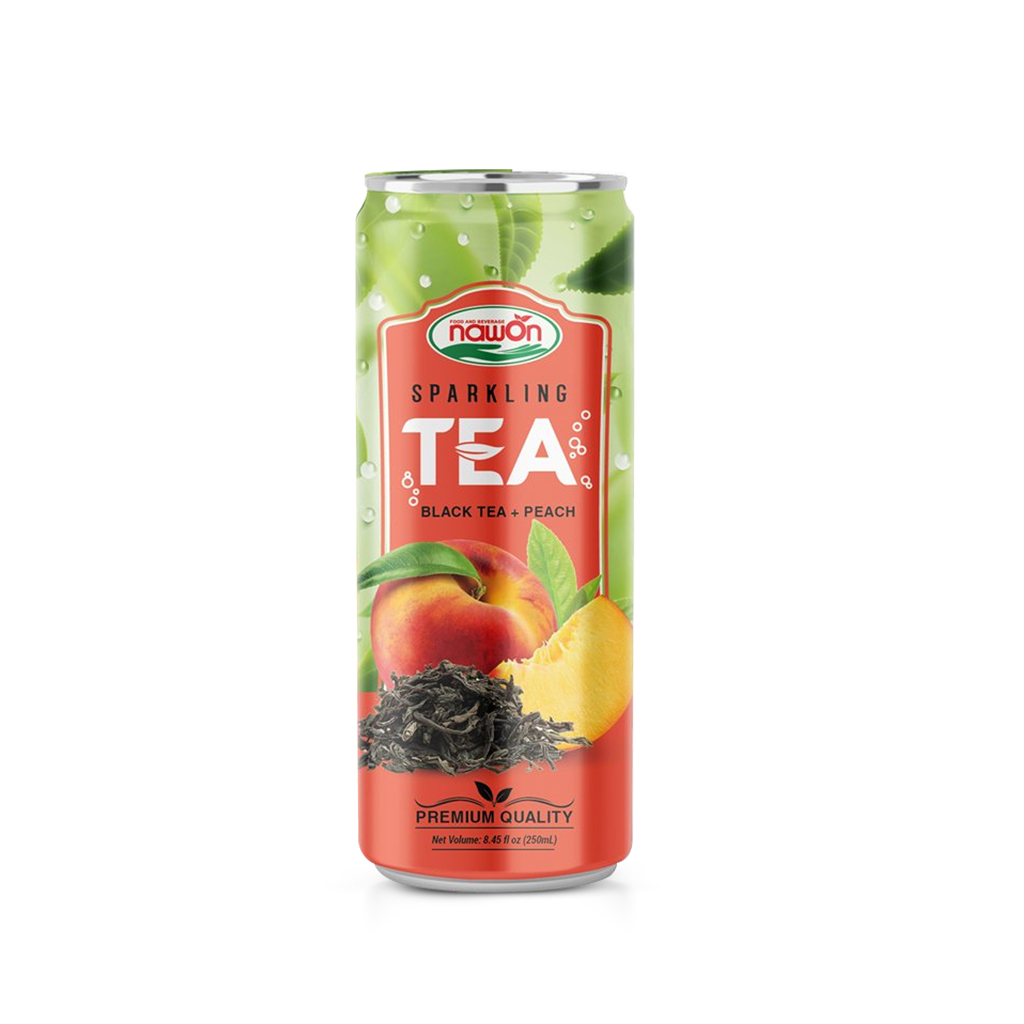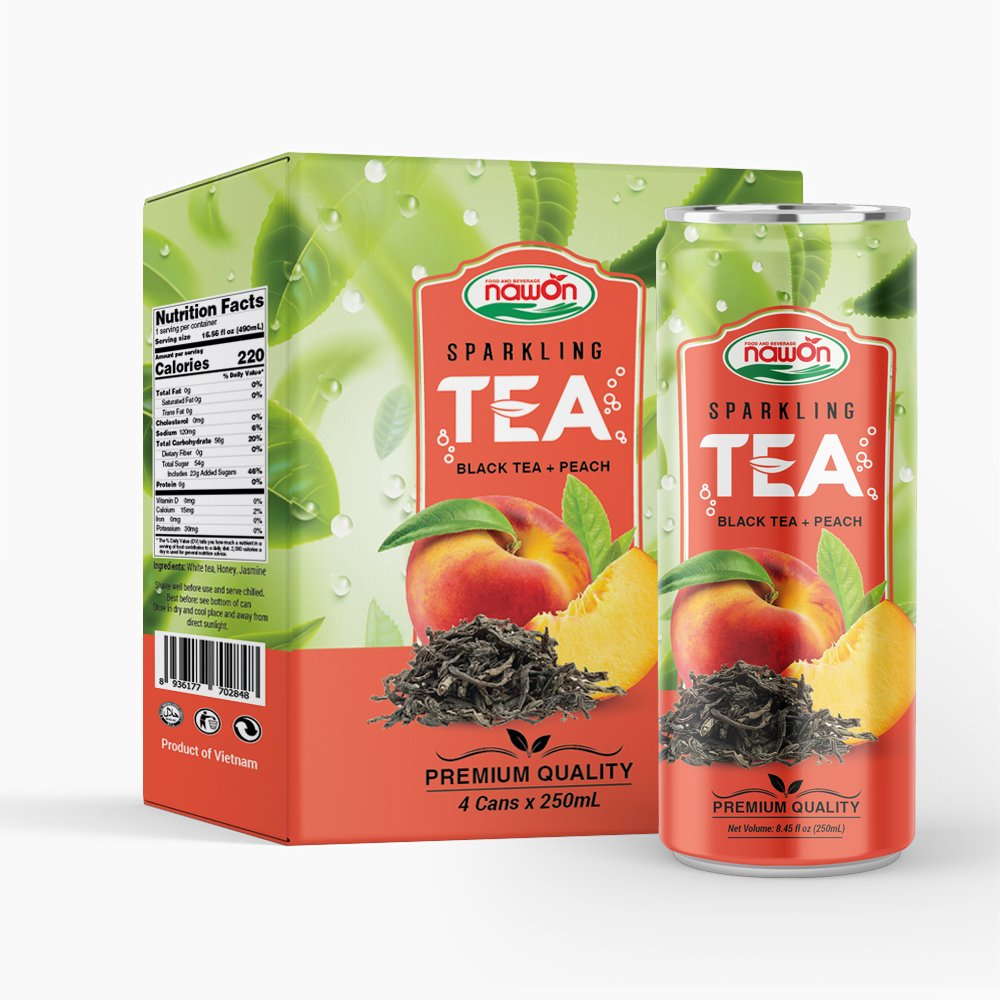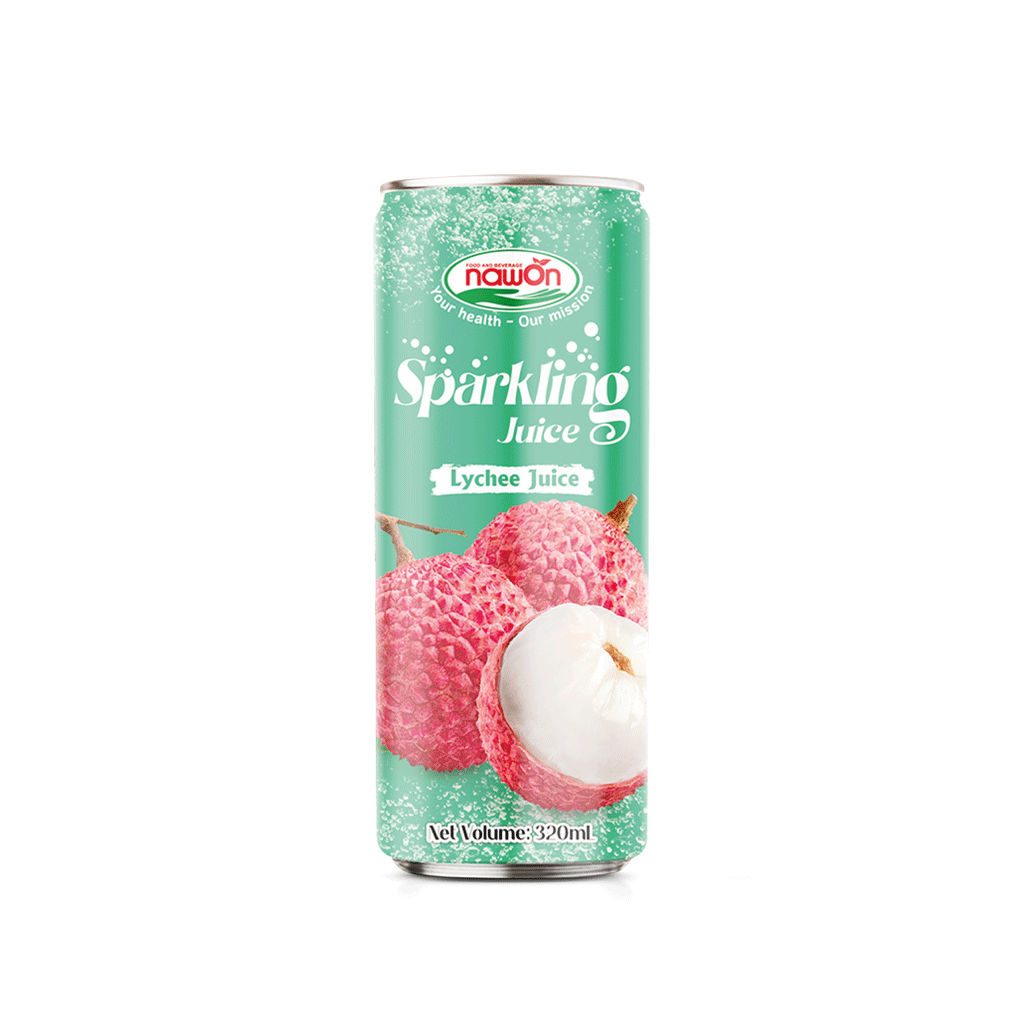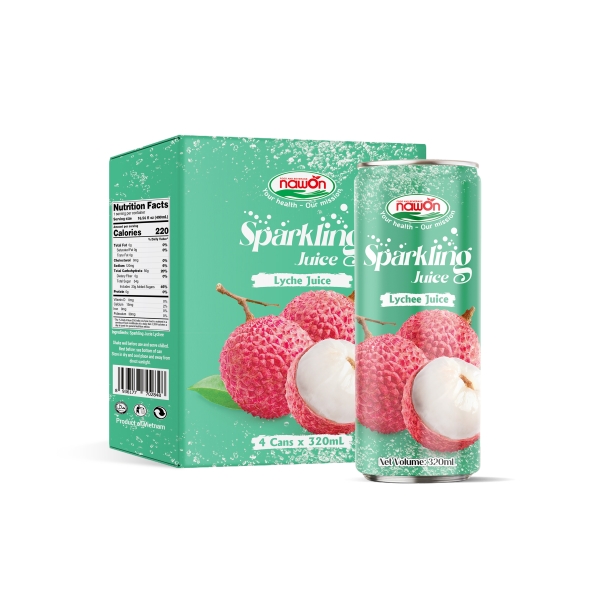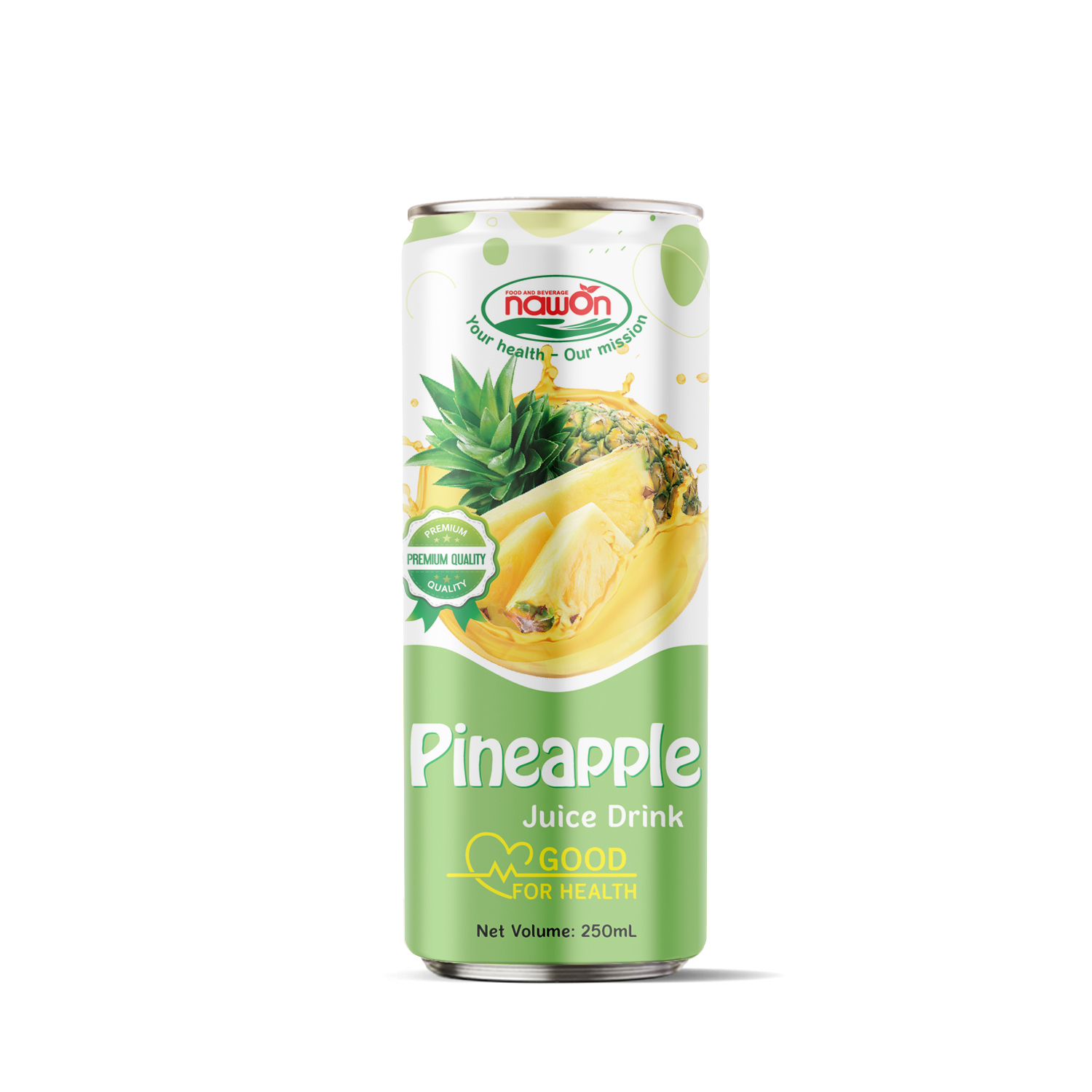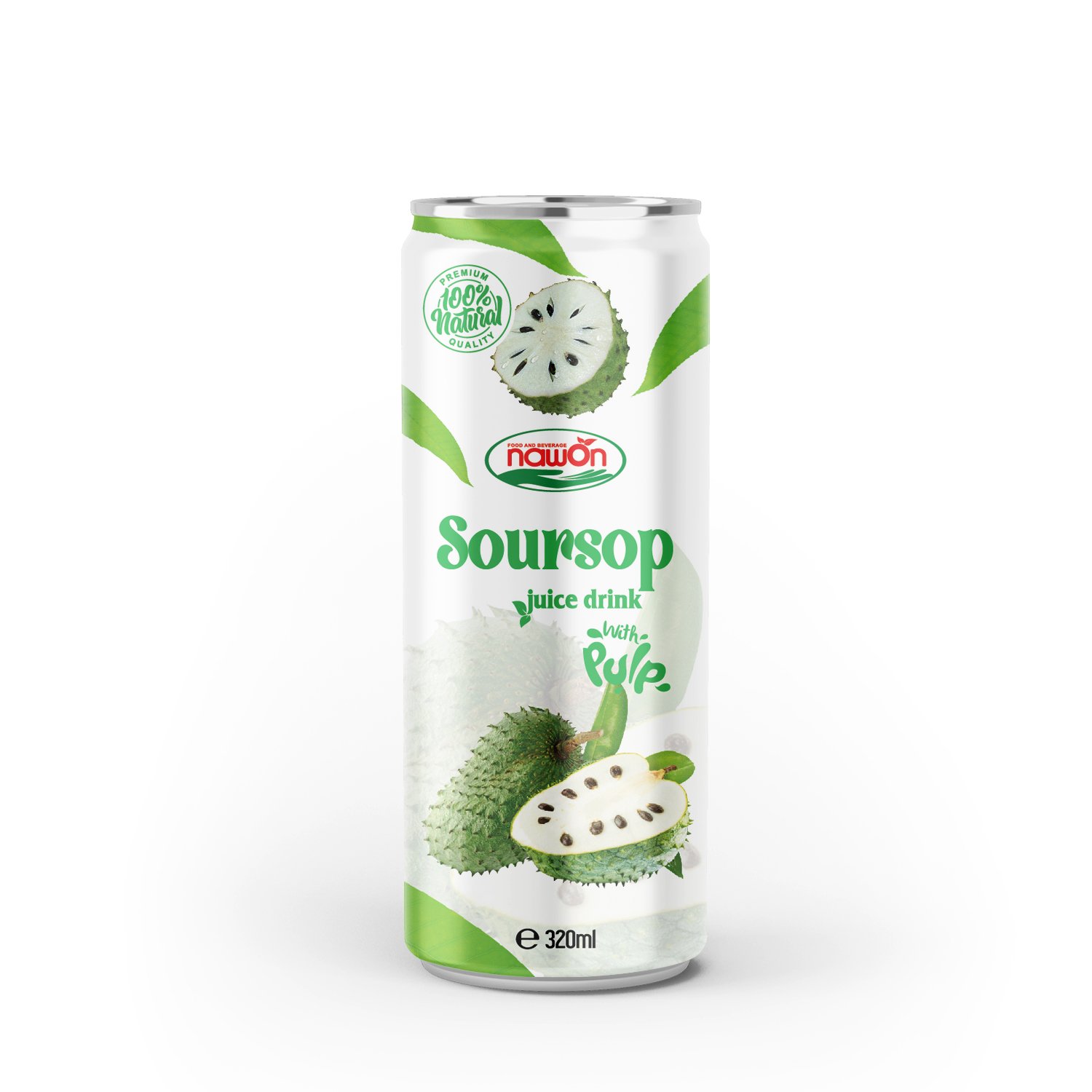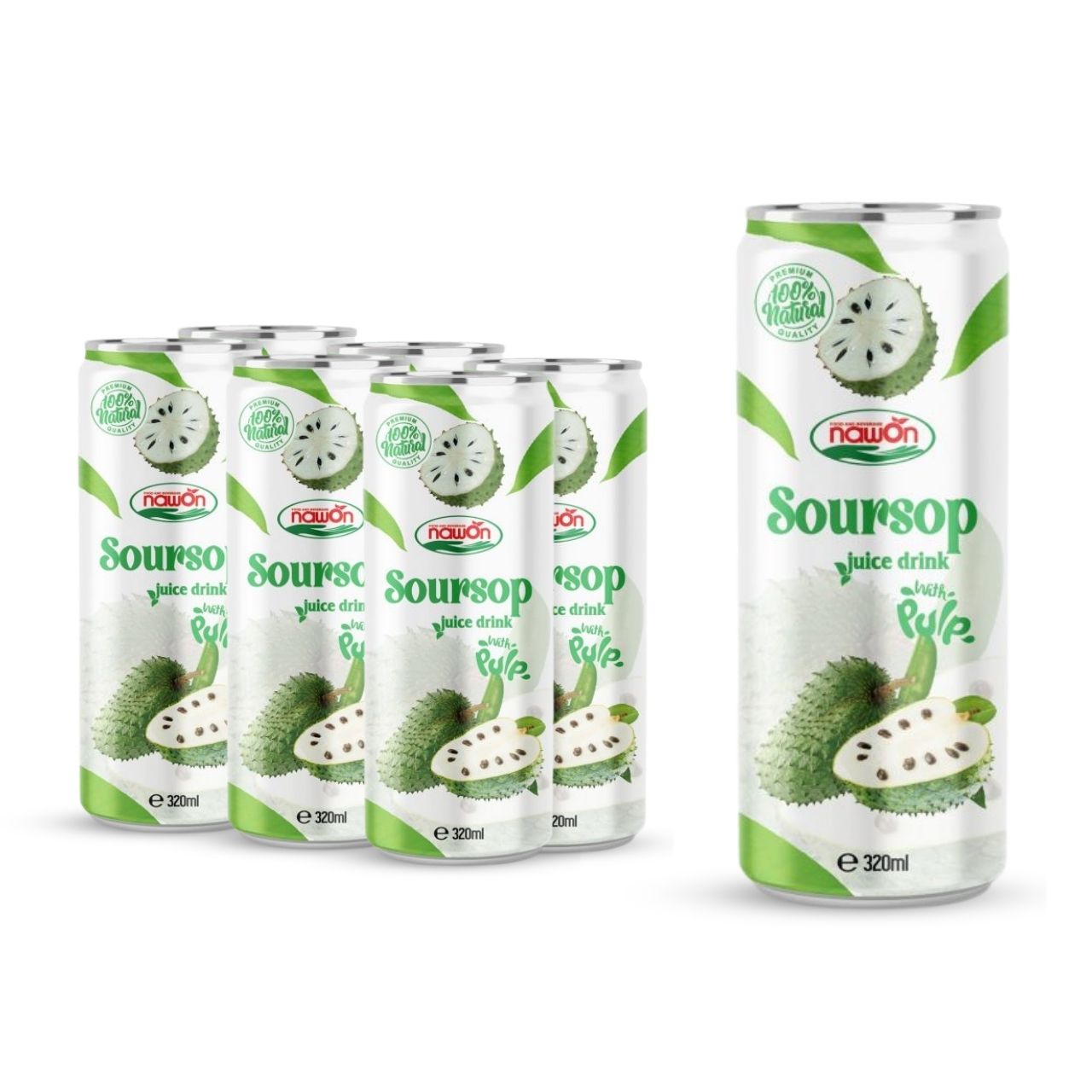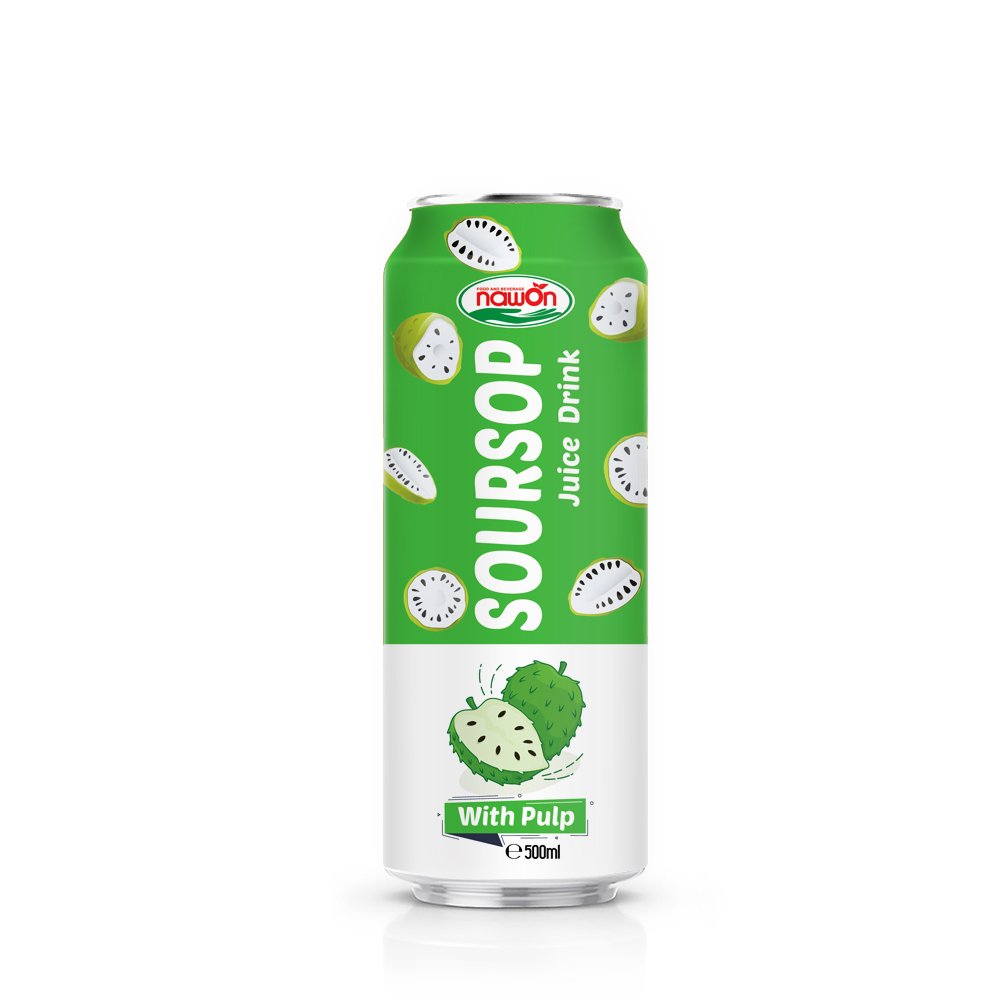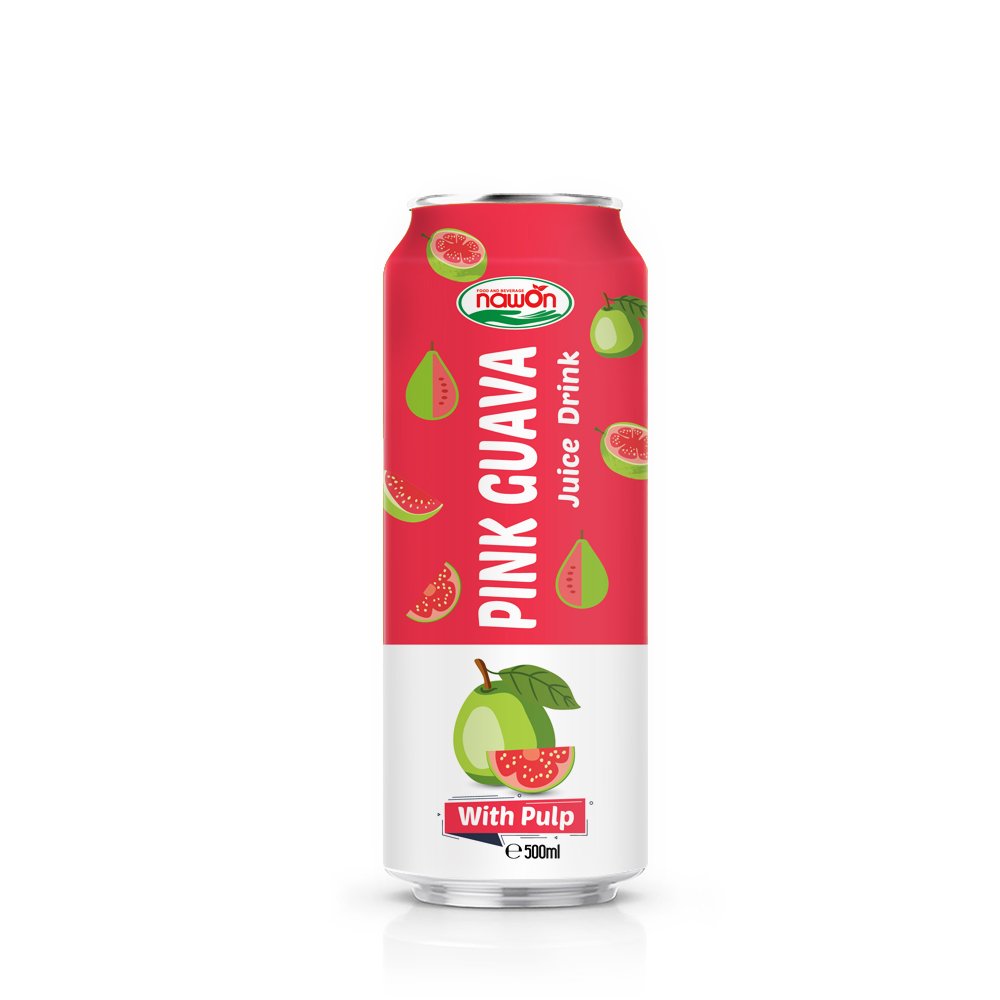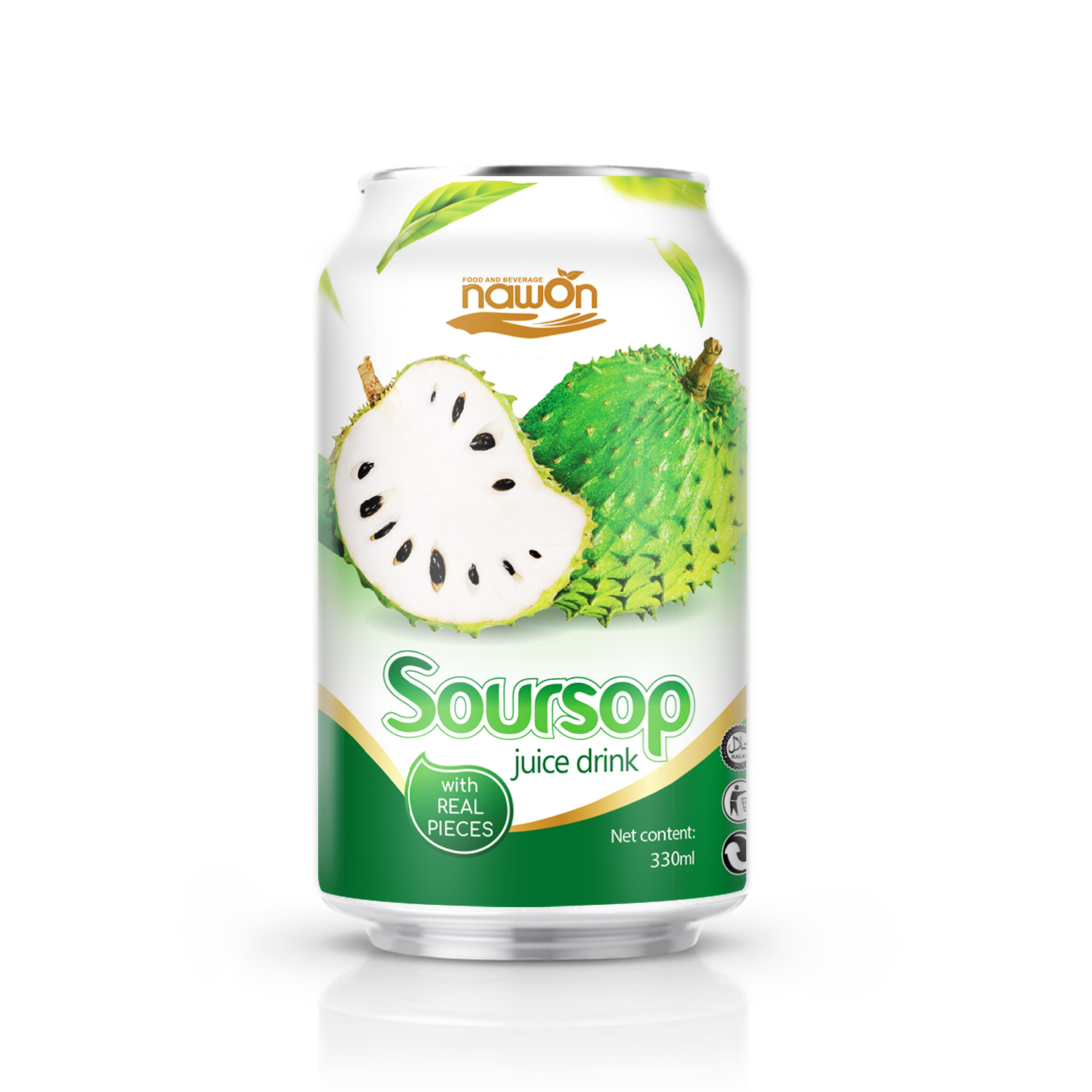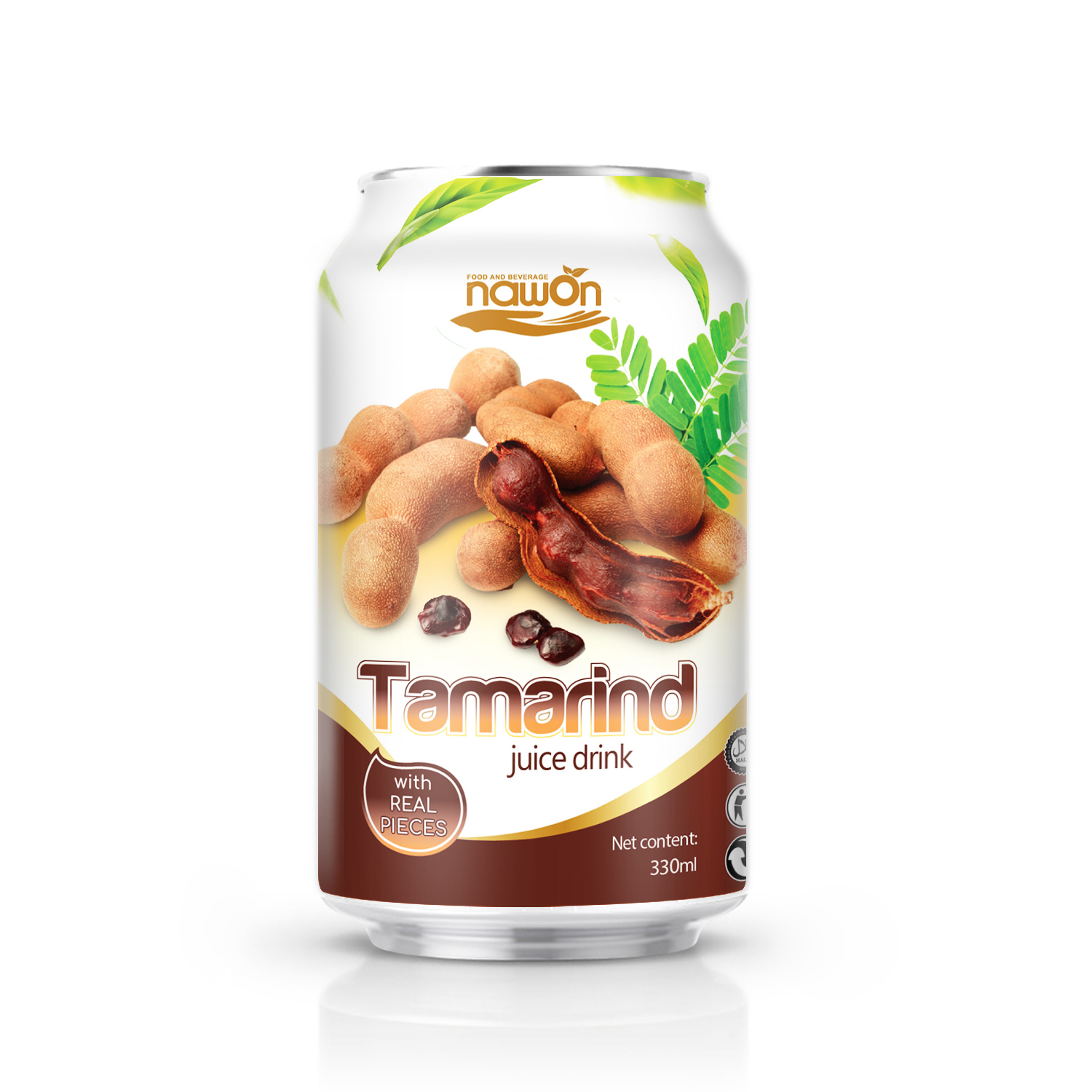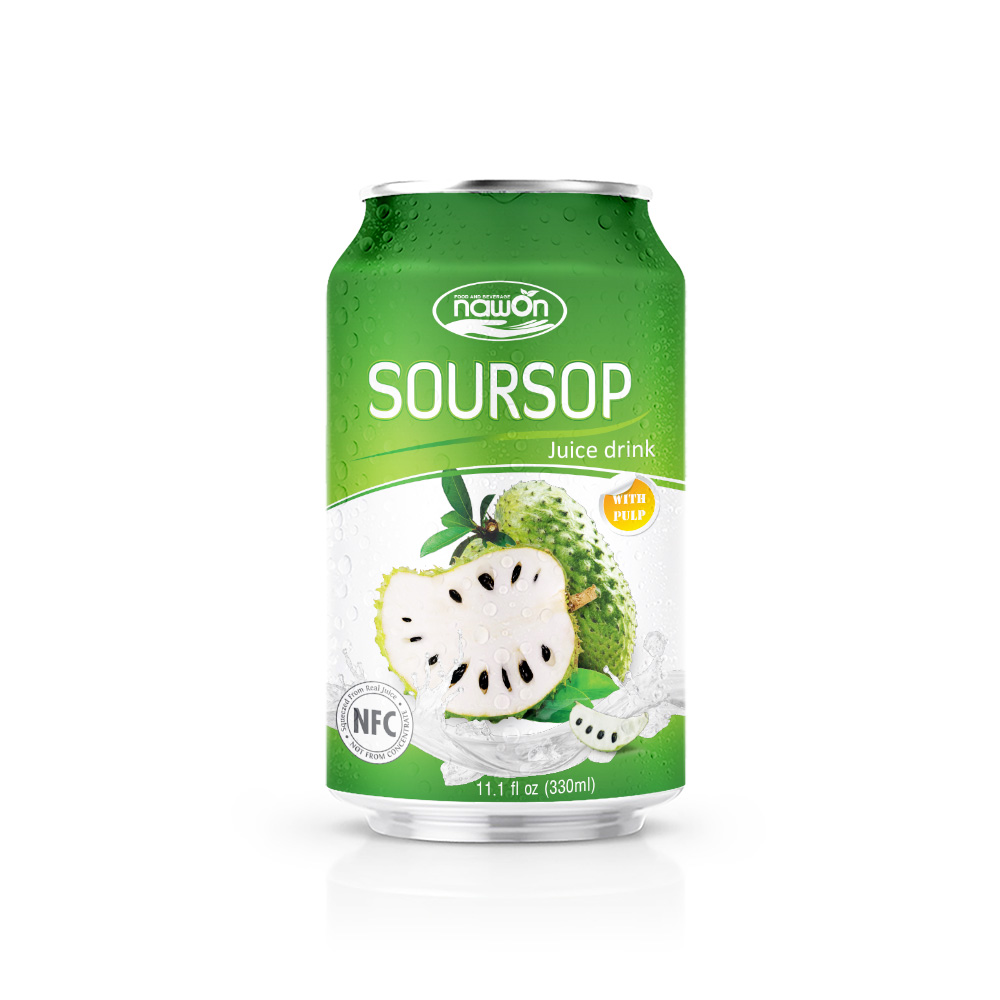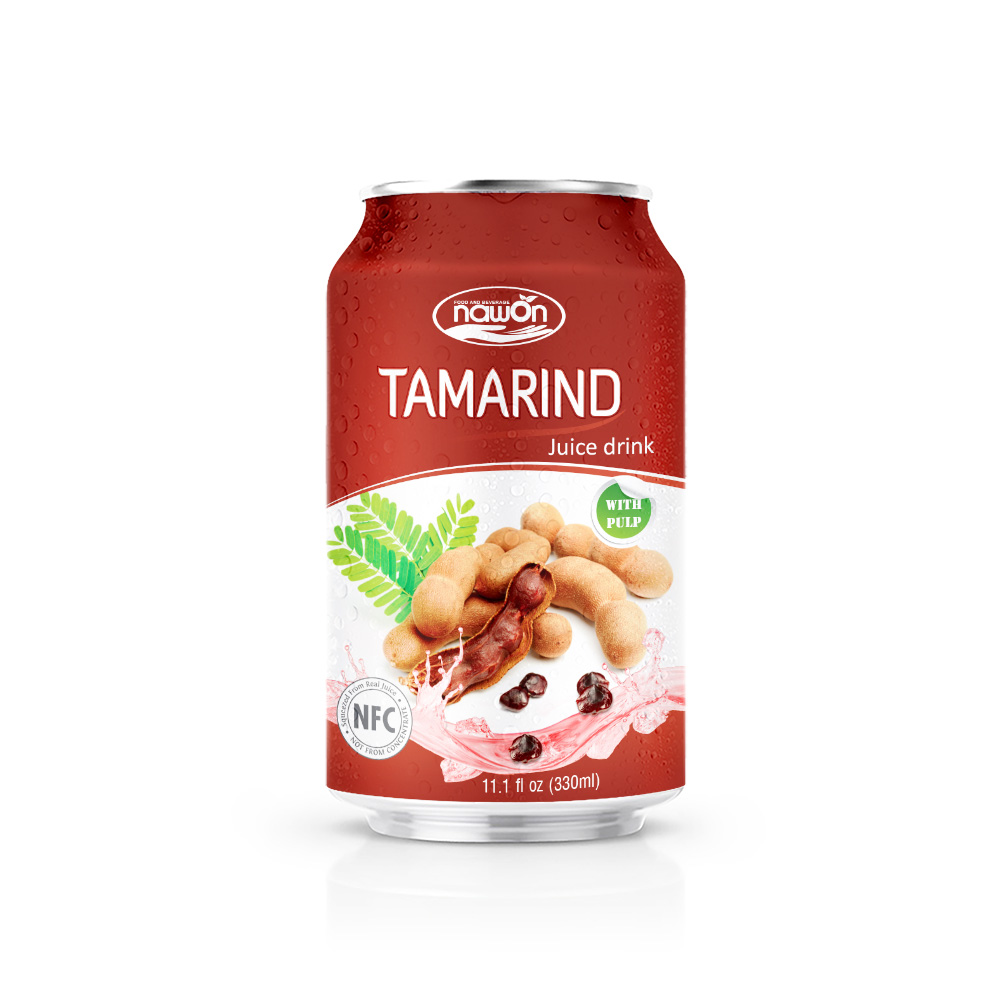The unusually shaped soursop fruit—it looks like an oversized strawberry that crossbred with an apple and grew thorns—is native to Central and South America, and is a popular, sweet delicacy there. Soursop tastes like a combination of strawberry, pineapple, and citrus.
A member of the custard apple family, the fruit comes from the Annona muricata broadleaf evergreen and is known for its health benefits, which may include reducing inflammation, improving the immune system and healing stomach issues.
Soursop nutrition facts
The following nutrition information is provided by the USDA for 1 cup (225g) of soursop pulp.
- Calories: 148
- Fat: 0.7g
- Sodium: 31.5mg
- Carbohydrates: 37.9g
- Fiber: 7.4g
- Sugars: 30.5g
- Protein: 2.3g
- Vitamin C: 46.4mg
- Potassium: 626mg
Carbs
Soursop contains almost 38 grams of carbohydrates per cup. Per the USDA Dietary Guidelines, a serving of soursop offers about 25% of your recommended daily intake of carbohydrates. The carbs in soursop do, however, come from naturally occurring sugars, and it contains more than 7 grams of fiber per serving (also about a quarter of your recommended daily intake). The glycemic index of soursop is low
Fats
Although soursop’s sugar content is high, the fruit is very low in fat and also keeps a two-to-one ratio of good (unsaturated) to bad (saturated) fats.
Protein
Soursop contains only 2.3 grams of protein per serving. So you’ll need to incorporate other protein sources, such as salmon, lean meats, and legumes, into your diet to meet your daily needs.
Vitamins and minerals
Soursop comes packed with micronutrients, such as 77% of your daily dose of vitamin C for boosting your immune system and more than 400 grams of potassium for blood pressure regulation and rapid workout recovery.
Health benefits
Soursop, also known as graviola or guanabana, may also provide a range of other health benefits. For example, graviola tea is often used to treat infections (both bacterial and viral) that cause cold-like symptoms. In addition, some people use it to treat sexually transmitted diseases like herpes. Not enough scientific evidence supports these uses, although studies show that some soursop extracts may provide immune system support.
Potential for cancer prevention
A 2018 study reported that extracts from soursop fruit, as well as the tree’s bark, roots, and leaves, had the therapeutic potential to combat cancer and other non-malignant diseases.
However, not enough human data support this claim. Experts from Cancer Treatment Centers of America warn against using soursop as a cancer fighter, and they note that soursop is associated with numerous unsubstantiated claims. Drugs developed from compounds in the soursop plant are more likely to be effective than simply consuming the fruit or tea made from its leaves.
Promotes digestive health
Due to its high fiber content, soursop can aid with proper digestion. The fruit’s juice can also act as a diuretic and cleanse the gastrointestinal tract by removing excess sodium from the body. An extract of soursop has been shown to help heal gastric ulcers in lab animals.
Fights inflammation
Like most fruits and vegetables, soursop is a good source of antioxidants, which can help the body repair cell damage and combat inflammation.
Allergies
There have been no cases of soursop allergy reported in the medical literature. But any food that contains protein can theoretically be allergenic.
Adverse effects
You should avoid consuming soursop or drinking the fruit in a tea if any of the following apply to you:
- You have diabetes, as graviola has blood sugar-lowering effect in laboratory animals.
- You are taking drugs to reduce hypertension, as graviola is shown to have additive effects when taken with drugs for this health issue.
- You have liver disease.
- You have kidney disease.
Studies in laboratory animals have shown that compounds in graviola cause movement disorders and myeloneuropathy, a disease with symptoms similar to Parkinson’s Disease.
Varieties
In some regions, both “sweet” (less acidic) and “sour” soursop are cultivated. The sweet version is more likely to be eaten raw.
Soursop tea is brewed from the leaves of the soursop tree. It has traditionally been used to relax the body and decrease stress.
When it’s best
This tropical fruit is mostly available in Central and South America. You can substitute soursop with cherimoya, a popular alternative that is available online and in some groceries. Cherimoya tastes similar to soursop, as it also comes from the custard apple family and offers comparable nutritional value. However, cherimoya does not have the cancer-fighting potential of soursop or the same anti-inflammatory properties.
If you cannot find cherimoya, you can create soursop’s flavor profile by blending together equal parts strawberries, pineapple, and bananas.
Storage and food safety
You can store unripe, whole soursop fruits at room temperature. Ripened fruits will keep for a couple of days in the refrigerator.
How to prepare
Because the fruit is local to the tropics, you will not find soursop in abundance in North America. If you do get your hands on the fruit, you can eat it on its own, as you would any raw fruit. You can also incorporate soursop into syrups, smoothies, and other desserts such as ice creams, candies, and sweet beverages.

